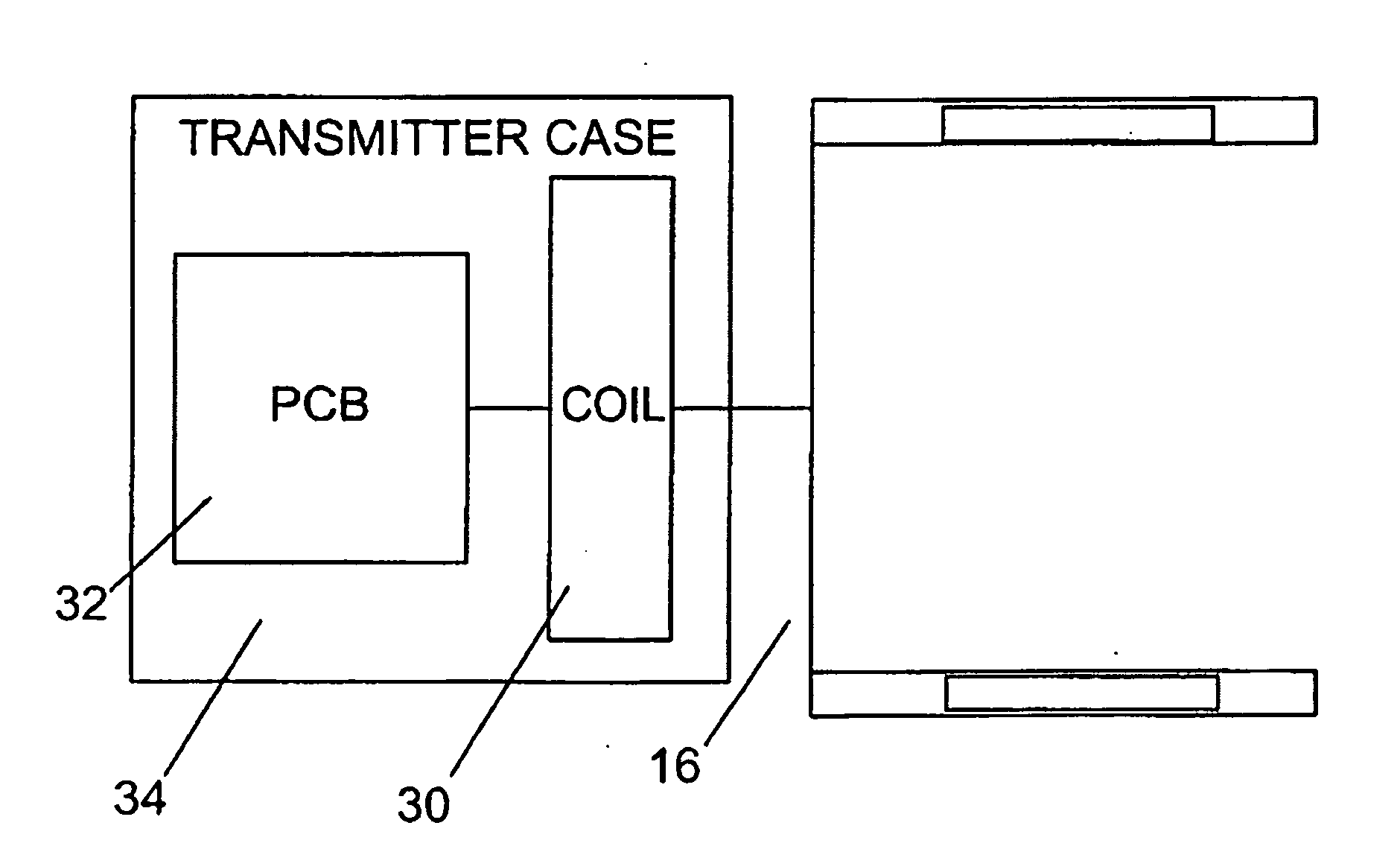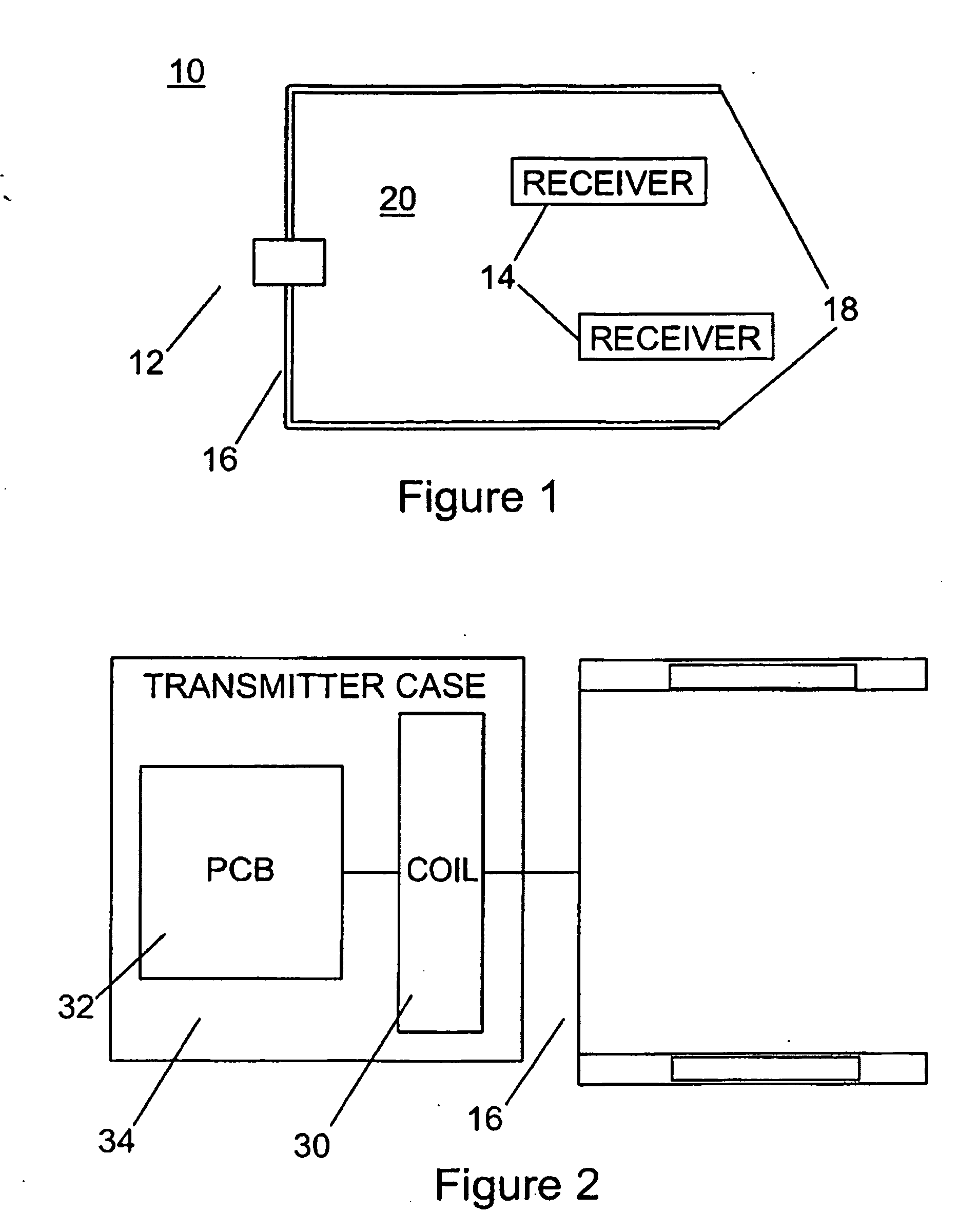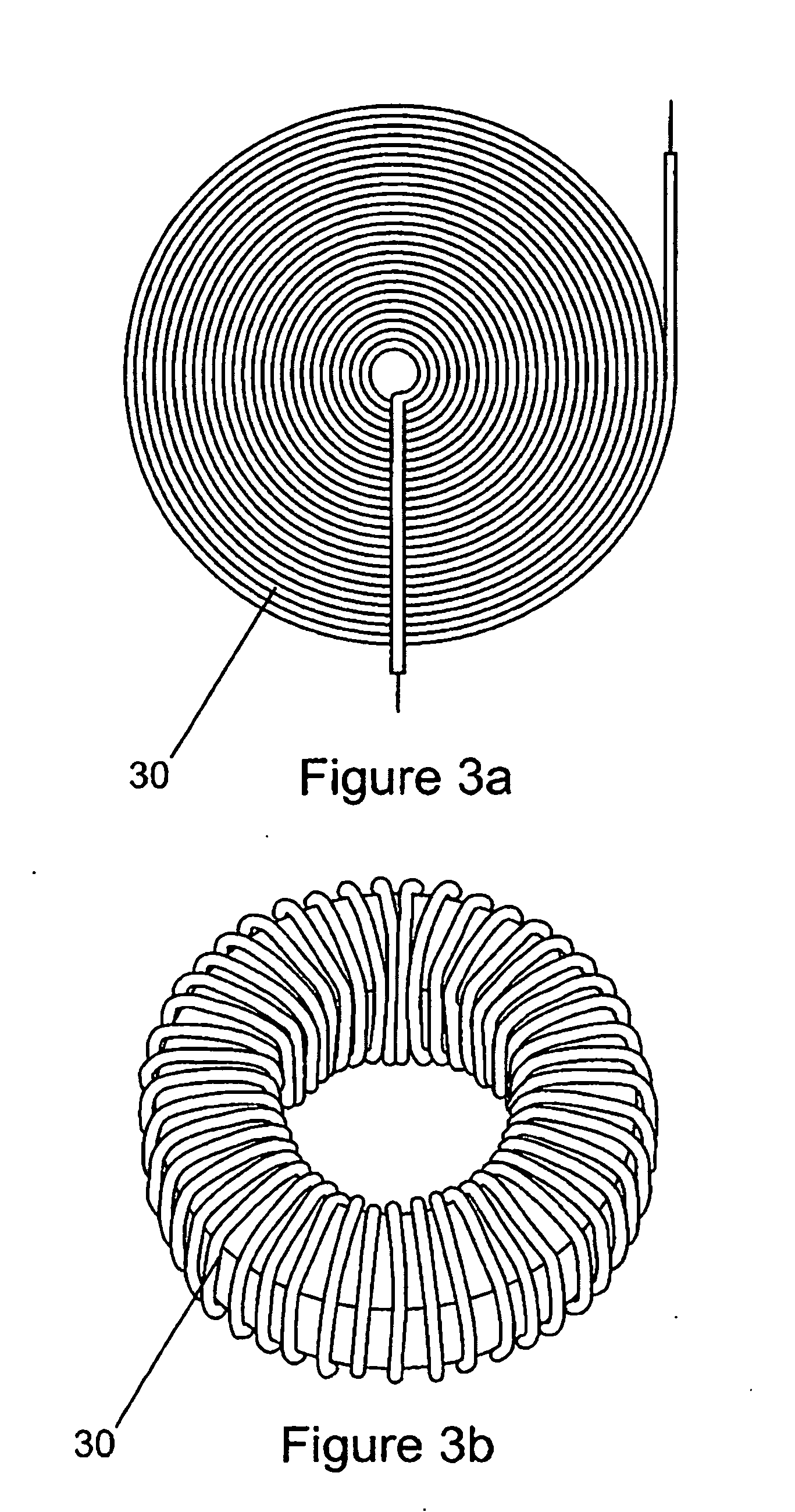Wireless electric field power transmission system and method
a technology of electric field and power transmission system, which is applied in the direction of electric energy management, inductance, electric devices, etc., can solve the problems of inefficient radiative energy transfer, inefficient energy transfer may be acceptable for data transmission, and the vast majority of power is radiated, so as to prevent electromagnetic field leakage and increase the electric field strength
- Summary
- Abstract
- Description
- Claims
- Application Information
AI Technical Summary
Benefits of technology
Problems solved by technology
Method used
Image
Examples
Embodiment Construction
[0081]Turning now to FIG. 1, a wireless electric field power transmission system is shown and is generally identified by reference numeral 10. As can be seen, power transmission system 10 comprises a transmitter 12 comprising a transmitter antenna 16 coupled and a plurality of receivers 14. Although only two receivers 14 are shown, it will be appreciated that this is for ease of illustration only. The power transmission system 10 may comprise more or fewer receivers 14. The transmitter antenna 16 comprises two approximately parallel, laterally spaced conductors 18 defining a volume 20 between them. The conductors 18 are elongate and generally rectangular and are oriented such that major surfaces of the conductors face one another. In this embodiment, each conductor 18 is formed of aluminum foil tape due to its flexibility, low cost and availability. Each receiver 14 can be positioned within the volume 20 to harvest power wirelessly as a result of an electric field generated within t...
PUM
 Login to View More
Login to View More Abstract
Description
Claims
Application Information
 Login to View More
Login to View More - R&D
- Intellectual Property
- Life Sciences
- Materials
- Tech Scout
- Unparalleled Data Quality
- Higher Quality Content
- 60% Fewer Hallucinations
Browse by: Latest US Patents, China's latest patents, Technical Efficacy Thesaurus, Application Domain, Technology Topic, Popular Technical Reports.
© 2025 PatSnap. All rights reserved.Legal|Privacy policy|Modern Slavery Act Transparency Statement|Sitemap|About US| Contact US: help@patsnap.com



